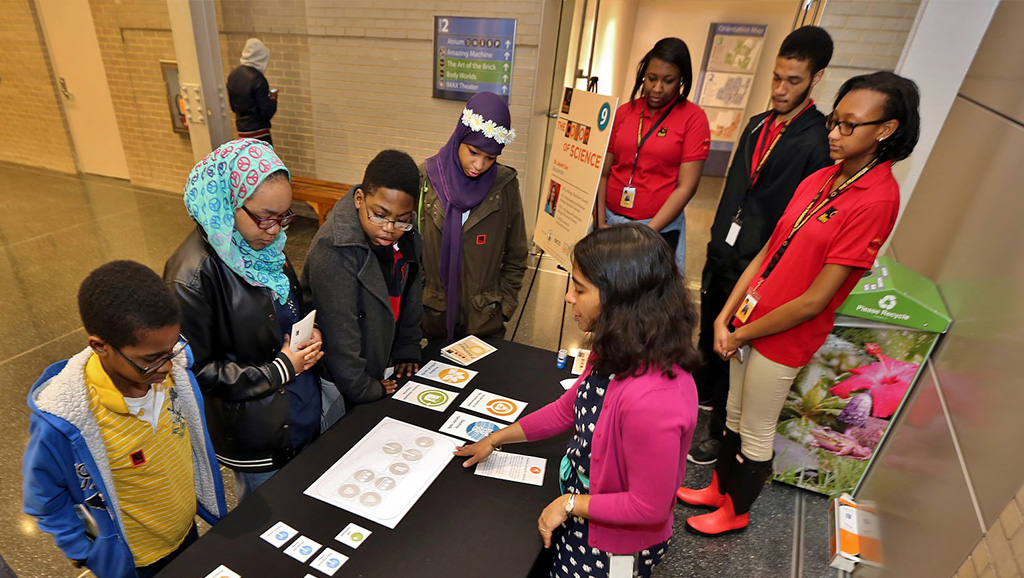Lesson Plan/Activity
Neuroscience & Society Curriculum
Who this is for:

Curriculum Overview
What does it mean to be human? How might emerging brain science change the answer? The applications of neuroscience have far-reaching implications for our self-identity, health, relationships, and social systems. As we imagine a just, inclusive, and responsive future in which neuroscience benefits everyone, this curriculum aims to engage young people today in dialogue about how these discoveries and emerging technologies will shape their tomorrow.
Overarching Themes
The Neuroscience & Society high school curriculum offers an in-depth focus on neuroscience through the lens of relevant societal issues, designed to be appropriate for grades 10-12. Key themes include:
- The brain and nervous system underlie all human behavior.
- The brain is always changing.
- Neuroscience informs individual decisions about personal health and wellness.
- Many spheres of human life will be transformed by neuroscience in the coming decades.
- Our understanding of the brain is still incomplete and rapidly evolving.
About the Curriculum
The Neuroscience & Society curriculum was originally developed in 2017 by The Franklin Institute and Center for Neuroscience & Society at the University of Pennsylvania through funding from the National Institutes of Health. The curriculum was updated by The Franklin Institute in 2023 to improve content, context, and usability through support from the Dana Foundation. The goal of the curriculum is to inspire students’ excitement about and increase students’ knowledge of neuroscience.
Evaluation by the Goodman Research Group has shown that after exposure to Neuroscience & Society curriculum content, students demonstrated gains in both knowledge about and interest in neuroscience. Curriculum material was especially effective in engaging female students, students who were initially less interested in neuroscience, and students who were initially less interested in science in general. Students also self-reported gains in their likelihood of pursuing further knowledge about neuroscience. These outcomes demonstrate that the curriculum successfully provides a solid grounding in topics of neuroscience and society that sparks curiosity and excitement about future possibilities.